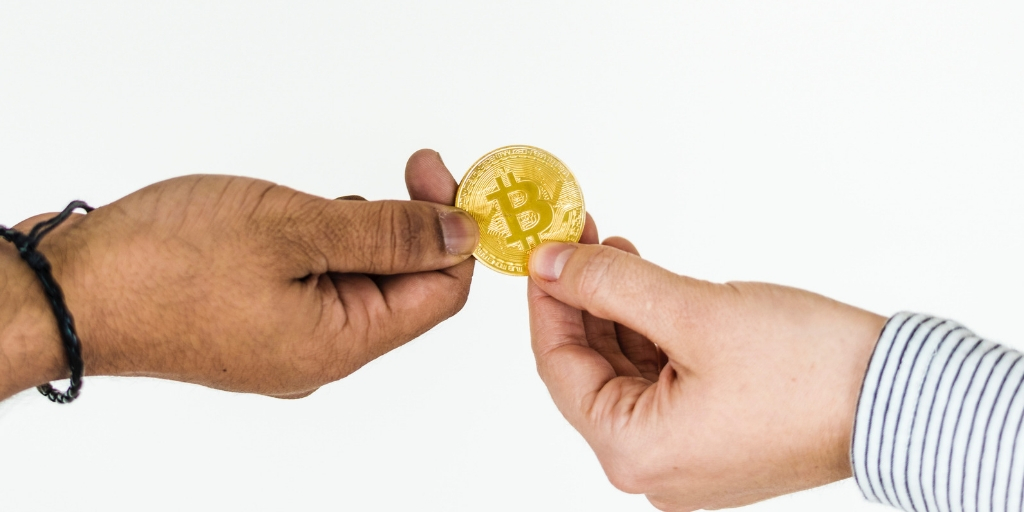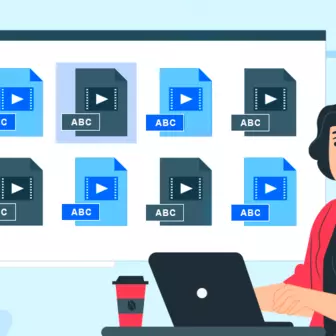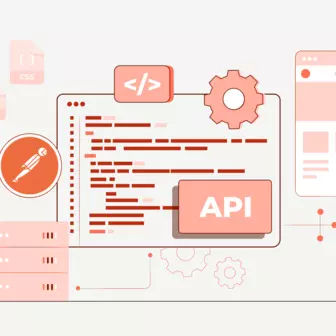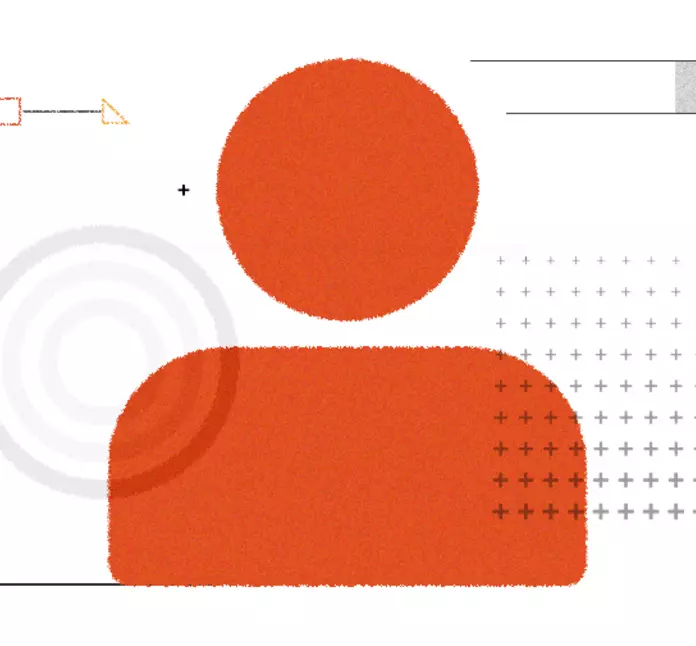Are Organizations Ready for a Future Dominated by Blockchain?
Bitcoin's dramatic value swings made the cryptocurrency market look like risky business. People who invested a few thousand dollars became millionaires, while others lost their savings. But the Bitcoin hype shed light on the new tech that powers cryptocurrencies –blockchain. Recognised as the next big disruptor, it was embraced as such, and blockchain is now at the forefront of the digital revolution. Its decentralised nature inspired entrepreneurs to launch more than 1,000 startups and attract $6.2 billion in venture capital funding. These businesses are spread across 333 funds and 75 countries. And since the popularity of blockchain is evident, it would be reasonable to expect that most companies are getting acquainted with this technology.

However, a Deloitte survey shows that around 40 percent of senior U.S. and U.K. executives don’t understand how blockchain works. Moreover, less than ten percent believe their companies can adapt to it. This data paints a bleak picture of corporations heading into the abyss. Organizations don’t understand the future of blockchain technology, nor the disruption it brings to the economy. As a result, the minority of executives who successfully introduced blockchain to their companies are perfectly positioned to dominate the market.
40% of senior executives don’t understand how blockchain works
And the future of blockchain for which these entrepreneurs are preparing is exciting. Self-enforcing smart contracts, decentralised autonomous organisations, secure payments, and interoperability are among different blockchains and among the few of many trends that will define this technology. In addition to this, sectors such as banking, digital ads, real estate, voting, and others will be transformed by blockchain.
As professor Erik P.M. Vermeulen writes, “We are currently living in a fast-developing 'space' between two coexisting realities: a centralized 'old world' reality and an emerging but incomplete new 'decentralized reality'.” And those companies that want to step into this new reality should first get to know the trends that are shaping it.
Here's how Drupal and Blockchain can work together
Forces that Shape the Future of Blockchain
The blockchain is a digital ledger of cryptographically secured transactions that run on thousands of computers. Its principle of distributed data storage will shape the way we treat data in the future. As DataStax's Billy Bosworth notes, “any solutions for next-generation data problems must come to grips with this fact.”
Furthermore, the concept of smart contracts is equally important. As a blockchain code that contains rules agreed on by both parties, a smart contract is automatically executed only once all of its conditions are met. It can potentially be used in many different ways. For example, you could rent an apartment, sell a house, or buy stocks using a smart contract.
And since it reduces the cost for both companies and consumers by eliminating intermediaries, we’ll see many real-world examples of this technology in the future.

But Robert Mao, the founder of the blockchain startup ArcBlock goes one step further. While he acknowledges the benefits of smart contracts, Mao argues that it’s time for Blockchain 3.0. In his view, “Soon, all eyes will be on the next iteration of blockchain and its decentralized apps, or 'dApps'”. These are essentially applications or software programs that exist only on the blockchain.
Unlike smart contracts, they have an unlimited number of participants in the market. BitTorrent and Tor are dApps as well, although they exist on a Peer 2 Peer (P2P) network of computers. An example of a blockchain-based dAppisa decentralised autonomous organisation (DAO).
One such organisation called The DAO was launched in 2016 to operate as a venture capital fund. But unlike traditional companies, The DAO and similar organisations usually don’t have a CEO and all shareholders participate in the decision-making process. Another crucial feature of The DAO was that its actions were governed by smart contracts.
Various blockchains will eventually be able to collaborate based on a set of open standards
For instance, if The DAO sets a rule to allocate ten percent of its monthly profits to a humanitarian cause, this policy would self-execute every month. And although The DAO was a popular project, it didn’t last long. After gathering more than $100 million in a crowdfunding campaign, it got hacked and this stalled the whole project.
But other DAOs exist and this concept remains popular with some members of the blockchain community. And in addition to this, experts such as Thiru Sivasubramanian predicted that various blockchains will eventually be able to collaborate based on a set of open standards.
Trends such as these and many others mold and will continue to shape the future of blockchain. At the same time, this technology is set to disrupt many sectors in ways that we can’t even imagine. As Filament’s Allison Clift-Jennings explains, “The impact of distributed ledger technology may be greater than any of us realize – it has the potential to change economics, business, and society, and we’re just beginning to scratch the surface of what’s possible.” And while most people have yet to even understand what blockchain is, corporations are investing billions in this technology.
Industries That Will Be Changed By Blockchain Technology
Financial institutions are especially prone to pouring money into blockchain projects. For example, JP Morgan has built the Interbank Information Network (IIN) powered by its own blockchain platform Quorom.
Statista reports that the Finacial sector holds the major market value in Blockchain in 2018
It enables banks to exchange payment-related information, and even competes with established platforms such as the payment network SWIFT. More than 70 banks are already testing IIN.
At the same time, Barclays funds many blockchain fintech companies through its accelerator programme. Goldman Sachs and Visa invest in this field, too, hoping to increase the efficiency and security of their operations, as well as those of the entire financial ecosystem.
Besides the financial market, real estate is another sector poised for disruption by blockchain. And real estate could benefit greatly from this technology, as its current paper-based processes make the industry slow, inefficient, and susceptible to fraud. Blockchain could prevent these problems by creating an immutable public database. UNDP, for instance, is already testing this technology in the city of Panchkula, India.
It created a blockchain-powered land registry system that relies on smart contracts to register transactions. It’s easy to use as nothing changes for ordinary citizens who still have to come to a local municipality to register a land sale. However, the system used by public officials will record the sale in the blockchain, making the transaction transparent and permanent. That way, people won’t depend on paper documents to prove that they’re the owners of a particular piece of land. And Dubai is planning an even bolder step of replacing entire government systems with distributed ledger technology by 2020.
Blockchain can assist governments in other ways, too, by improving voting and preventing identity theft. For example, the processes of casting, tracking, and counting votes could be based on blockchain infrastructure.
Voter fraud could be prevented as each vote is recorded as a traceable transaction. Startups such as Follow My Vote have already developed an initial version of blockchain voting software.
But the central question in blockchain-based voting is how to prevent identity theft. The current system enables hackers to steal personal information centralised in the databases of credit agencies, online retailers, or tax records. But with blockchain technology in place, the system would verify your identity by asking for access to your digital identity record. And this access would be granted only with a unique user-generated key.
Blockchain startups have set their sights on the digital ads industry as well.
Messaging apps are yet another type of service that could be improved by blockchain. The team behind the encrypted messaging app Telegram is working on building the blockchain platform TON that would provide payment, file storage, and other types of services.
Meanwhile, blockchain startups have set their sights on the digital ads industry as well. This sector is troubled by a lack of trust from consumers due to dishonest marketers who use fake pictures, videos, and social media followers to appear authentic and trick consumers.
He argues that blockchain technology could address this issue by verifying the authenticity of the online content. What’s more, it could also solve the problem of fake views and ads appearing on hate or extremist websites.
The list of industries that blockchain is set to transform is long. Cloud storage, the Internet of Things, entertainment, insurance, retail, and healthcare are on that list as well. But the crucial question is how should companies prepare for this revolution?
What steps do they need to take and what questions do they need to ask if they want to benefit from blockchain technology?
Companies Must Discuss These Three Things Before Jumping into the Wagon
Michael Ferguson, the CEO of Rainmakers, recommends that companies that want to prepare for a future dominated by blockchain must discuss three critical issues. The first one is about the prospects of blockchain destroying their business model. For example, Airbnb helps people to find a place to stay when travelling.
But if blockchain makes the list of people who have rooms to rent publicly available, Airbnb’s service might become obsolete. With such scenarios in mind, every company must know how its services can provide value to consumers even if blockchain destroys its business model.
The second issue to discuss ‘how public their blockchain should be?’.
For instance, if an HR company develops a blockchain network where job seekers share their information, it should decide how many of those details are hidden from employers behind a paywall.
At the same time, companies need to answer a third question: what incentives will they offer to those who participate in their blockchain?
The growth of such a network depends on attracting a critical mass of companies and consumers and this can make or break the project. Providing some sort of financial or other incentives can help. And while not every company needs to build a blockchain network, it must at least discuss this technology and analyze its potential impact.
There’s simply no going back
Interpreting the future of blockchain can be as complicated as the technology itself. But one thing is sure – blockchain is here to stay. More than 300 investment funds and financial giants such as JP Morgan, Visa, and Goldman Sachs are supporting hundreds of startups in the blockchain ecosystem.
Various applications of blockchain are disrupting dozens of industries. From healthcare and banking to real estate and voting, blockchain is bent on transforming our society and business.
However, only a small number of companies are currently able to adapt to this trend. This means that most businesses are heading into the future unsure in their chances to survive the looming technological revolution.
The time to act is now, and the first step in that direction is to understand blockchain and the disruption it can cause in particular sectors. As Vermeulen says, “We have already passed the 'tipping point' in our experimenting with decentralized technologies. There’s simply no going back.“
The wheel has turned a full circle. Now is the time to adopt this next big thing. To explore this innovative technology, reach us out at [email protected]
Subscribe
Related Blogs
Trek n Tech Annual Retreat 2025: A 7-Day Workcation of OSL

OSL family came together for the Trek n Tech Annual Retreat 2025, a 7-day workcation set amidst the serene beauty of…
Exploring Drupal's Single Directory Components: A Game-Changer for Developers

Web development thrives on efficiency and organisation, and Drupal, our favourite CMS, is here to amp that up with its…
7 Quick Steps to Create API Documentation Using Postman

If you work with API , you are likely already familiar with Postman, the beloved REST Client trusted by countless…




